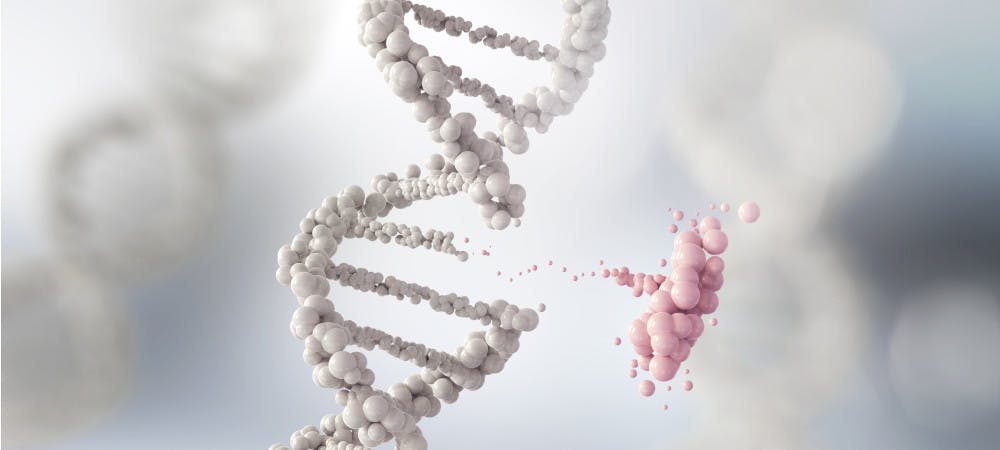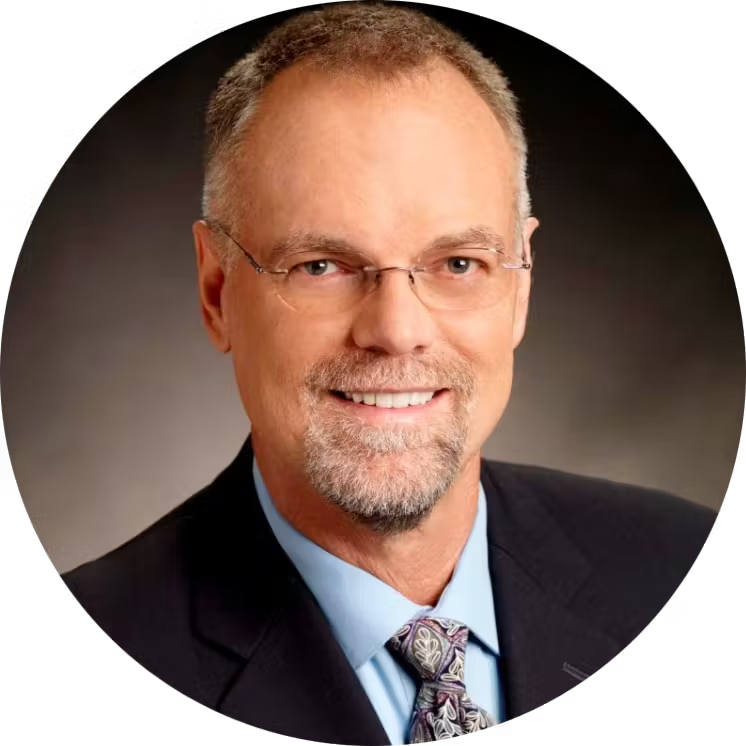Dr. Andrews is an international expert in research on telomeres and the founder and director of Sierra Sciences since 1999. He has a PhD in molecular biology and casually runs 130-mile ultra-marathons in his spare time. These are just a few of Dr. Andrews’ accomplishments. Our interview focuses on why we age, whether aging is a disease, the role of telomeres in curing aging and more.
What are the main causes of aging? Is aging a disease?
Dr. Andrews: I believe aging is a disease. There are a lot of life-forms that don’t seem to have any detectable aging process. So if we have it and they don’t, I think of that as some kind of disease. Just because every human has it doesn’t mean it’s not a disease. This is a plague that’s affecting every single person on the planet. There are a lot of controversies right now about trying to get governments to classify aging as a disease. I personally don’t consider that a serious issue in research because there are always age-related diseases that we can test in clinical studies. Like the one, we have underway right now.
What you are studying is the science of Telomeres, correct?
Dr. Andrews: That’s part of it. I’m obsessed with the whole subject of aging. In my personal life, I do everything possible, that has been published in Scientific Peer Review Journal Studies, to play a role. But I believe that the most important thing that we need to do to solve the aging problem is to figure out a way to stop telomere shortening. Because no matter what else we do, nothing’s going to work if we also have this telomere shortening problem going on.
What sparked your interest in this?
Dr. Andrews: There was a movie about me that also includes Aubrey de Grey called “The Immortalists” and my father is in that. It described how he put the seed in me when I was 10-years old when he found out I was interested in science and medicine. He was obsessed with curing aging. I’ve been obsessed with it my whole life. I am a very logically-minded person and I could never make sense out of all the theories that existed. I thought it’s got to be more complicated than that. Plus most of the theories don’t explain everything that we know about aging. So I kept my eyes open for something that might make sense. Then, in the early 1990s, I heard somebody talk about the fact that our telomeres shorten as we age. It wasn’t known if it was a result of aging or caused aging, but the correlation said to me, “This could be the exact thing that I’ve been looking for”. I always believed there had to be some kind of clock that is ticking and is set differently in dogs and cats than it is in humans. None of the other theories had anything like that going for them. I jumped on the bandwagon. Then it narrows. I’ve been at Berlex Biosciences doing cancer research, heart disease research and inflammation research for 20 years.

The problem with this gene therapy is that it costs us USD 700,000 to produce enough to treat one person once.
And these are all age diseases?
Dr. Andrews: It depends on your definition. Cancer can be a nonaging disease too although it is definitely correlated with aging. But there were some aging-related projects that I was doing like osteoporosis but none of them were specifically focused on global aging. I heard this guy talk and I just decided I was going to leave the company I’d been for 20 years and go work with this guy. That’s what I did. He put me in charge of three-quarters of the entire company and the mission was to discover the enzyme telomerase and we discovered it in three months, 17 days after I started working there.
I read that you came to him and said that you would solve the issue or at least you would find the source of this issue within three months. Something that hadn’t been accomplished for years. And three months and 17 days later you had it.
Dr. Andrews: Yes, and I wouldn’t have been 17 days late except for the fact that I felt the company interfered a lot. It took 17 days longer than I thought it would. But I’ve been obsessed with it ever since then. Unfortunately, at the same time I discovered telomeres, I was leading the research team. We not only showed that we could totally stop the aging process in every way imaginable (by growing human cells in a petri dish), we also showed that the anti-stems of telomerase could kill a cancer cell and have no effect on normal cells. The investors at the Geron Corporation where I was at the time, said, “We can’t do both: find a cure for aging and cure for cancer we’ve got to do one of them”. They decided a quicker return on their investment would be to focus on cancer. So I left them, started Sierra Sciences, and focused on aging.
Can you tell us a little bit more about Sierra Sciences? What is the role of the company?
Dr. Andrews: One purpose only. That is to do research to figure out a way to produce telomeres in all of our cells that will then lengthen our telomeres and answer these questions: will telomere lengthening reverse aging? Will it reverse declining health and age? Will it cause cancer? I’m 90 percent certain that it will cure aging and that it will reverse aging and declining health with age, and that it will not cause cancer. It will do the exact opposite and decrease the risk of cancer. That’s what the company is totally focused on. We’re not a marketing company. We don’t sell anything. When we discover something, we put it on the shelf. And then when some other company comes to us and says they were hoping they could sell something that would affect telomere length, we say, “Well, we have got some things if you want a license from us, you can.” We do that just because they get to market it and sell it, and pay us a royalty on their research. We are dealing with four companies right now. I think that the biggest opportunity that exists that is totally untapped so far is the whole pet market. I know that people spend more money on the health of their pets than they do on themselves. And we have things sitting on the shelf right now that will hopefully cure aging in dogs, cats, horses and pigs. Anybody who wants to market those things would be doing human health a lot of benefit too because every penny we make from royalties would be going directly into our research.
I believe that the most important thing that we need to do to solve the aging problem is to figure out a way to stop telomere shortening.
What is your main focus at Sierra Sciences today?
Dr. Andrews: Right now it is trying to get enough funding to do our research. Before the global financial crisis in 2008, we were spending about a million dollars a month on our research and we had very enthusiastic investors that were paying the bills every month. That’s what it needs in order to do what we are calling “high throughput drug screening,” searching for a small molecule drug that would get inside us when we swallowed it and induce the production of this enzyme telomerase, to lengthen telomeres. We were having a very successful rate of progress, estimating that we were one to three years away from having the ultimate pill that would make everybody younger but the global financial crisis struck and my investors couldn’t fund the company anymore. So we resorted to the idea of we’ve had a lot of discoveries, let’s get other companies that are making the products and get them involved. And that’s how we’ve been funding ever since, but it’s never come close to the million dollars a month, maybe just USD 100,000 a month. That’s enough for the salaries, but not enough to do the research.
What you’re saying is, USD 1 million a month, for one to three years, is USD 36 million, which is literally a drop of a drop in the bucket.
Dr. Andrews: They keep saying that, but nobody’s investing. A lot of people want it, but want somebody else to invest. It’s usually the case. We get a lot of people very, very interested in what we’re doing.
What positive and negative side effects have you seen in telomere lengthening and induction?
Dr. Andrews: The side effects have been zero. There have not been any negative side effects observed. There has been a lot of speculation that there might be side effects and it’s all based on hearsay, no scientific data whatsoever. And it’s just a really crazy thing that we have these potential negative side effects that are totally based on hearsay and there is tons of scientific data proving that exact opposite is true.
How far away are we from having complete control over telomere inducement?
Dr. Andrews: It depends on who ‘we’ are. We have a clinical study already underway where we are treating people with a gene therapy that delivers telomeres. We haven’t treated the first patient yet. We just started two weeks ago. We started the baseline studies with one patient at a time, and with the first patient, I’ve got their baseline studies done. As soon as we get finished analyzing those, which is something I’m doing here today at work, we will then treat the person. So we are well underway. The problem with this gene therapy is that it costs us USD 700,000 to produce enough to treat one person once. And, so the ‘we’ here, is only going to be the really wealthy who can afford something like this. But again, I’m going to use my royalties to make it cost 10 cents per person per single treatment, and that’s one to three years away.

I wouldn’t be surprised to see telomeres reversed aging every way imaginable. But I also wouldn’t be surprised if we find out it’s only part of it and other things have to be done too.
Would the telomere inducement therapy be able to reverse the process of aging?
Dr. Andrews: I wouldn’t be surprised to see telomeres reversed aging every way imaginable. But I also wouldn’t be surprised if we find out it’s only part of it and other things have to be done too. So I’m very glad that other people are doing other things besides telomere shortening. But my mission is to cure my own aging, so I don’t want to put all my eggs in one basket. So, I’m doing everything I can to help other competitors of mine because anybody who’s working on curing aging is not competing with me as far as I am concerned. I think there’s a chance, I can’t prove it, but my mind is that of a scientist. So I would never say I’m confident that something’s going to work until I see the data.
A hypothetical question: if children were taking such treatment, would they remain children indefinitely?
Dr. Andrews: No. And the reason is that we’re not treating development at all, only treating aging. We’re not going to have a Benjamin Button type of thing. When we treat old people, they’re not going to go back to being babies. They’re going to go back to being at the end of their development. And a lot of biologists consider human development to pretty much stop at about 24, 25 years old.
OK so 24, 25 is the pivot point.
Dr. Andrews: Yes. If a 10-year-old were taking a telomerase inducer that worked, they would still grow normally until they got to be 24 or 25 and then they wouldn’t grow any older at all. And if we took a 90-year- old and treated them with a telomerase inducer, they could theoretically reverse to be about 24 or 25 years old.

